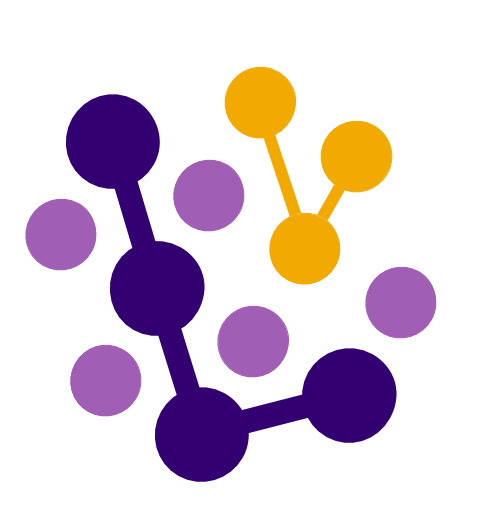We use cookies on this site to enhance your experience.
By selecting “Accept” and continuing to use this website, you consent to the use of cookies.

2025 Schedule is posted below.
This page provides with you with the details and descriptions of each workshop. All workshops are being offered ONLINE this year.
All times are in the Eastern Time Zone.
|
Title and Instructor |
Description |
Date and Time |
|---|---|---|
|
Intro to Analysis with R
|
R is a powerful and open-source software package for statistical analysis that is, by some measures, becoming the standard for data analysis in the private, public and academic sectors. Its strengths are its open nature, flexibility, its capacity to produce compelling and informative graphics and the thousands of users that produce an astonishing array of packages that enable the software to perform statistical analyses. This day-long session will introduce participants to R tailored to their topics of interest and level of familiarity with statistics and data analysis. Topics will include basic data management strategies, producing descriptive and bivariate statistics, the linear and generalized linear model and data visualization. |
July 18, 2025 9 a.m. to 4 p.m. |
|
Intro to SPSS: Data Cleaning & Analysis
|
[Unavailable - Not Running 2025] This 1-day workshop is ideal for anyone working, or planning to work, with survey data. No background in research methods or statistical analysis is required. This workshop introduces basic skills in data analysis using SPSS. The day will mix discussion of statistical analysis principles (e.g. variables, formulating hypotheses, levels of measurement, univariate statistics, bivariate statistics, etc.) with hands-on training. By the end of the workshop, participants will be able to import data into SPSS, recode variables, generate tables, and execute some basic descriptive analysis. Prerequisites: No background in research methods or statistical analysis is required. *Online attendees must have access to SPSS on their personal devices* |
Not Running 2025
|
|
Questionnaire Design, Sampling & Recruitment with Sean Simpson |
Many people underestimate the art and science that goes into developing and designing a good survey. This workshop will help you develop surveys that are both valid (truly answer your research questions) and reliable (respondents understand what you are asking). The instructor - the Vice President of Ipsos Public Affairs in Canada - will draw on several decades of research on survey design and response process as well as his own experience as a researcher, teacher and consultant in survey design. It is the perfect synthesis between theoretical and practical, real-world approaches. Among other topics, conceptualization, operationalization, the survey development process, survey structure and format, question wording, and online surveys will be discussed. The workshop is conducted in an interactive way and participants will be able to apply their knowledge through practice exercises. |
July 16, 2025 9 a.m. to 4 p.m. |
|
Qualitative Analysis
|
Qualitative data analysis (QDA) turns qualitative information (i.e. words, artistic expressions) into research findings. It is the process through which we identify, explain, interpret, and make sense of stories, text and images. This workshop offers an overview of the foundational components and elements of QDA, such as first-cycle coding and second-cycle coding. By the end of the workshop, attendees will understand how coding leads to abstractions/theoretical models and how to build a coding framework. It provides transferrable skills that can be applied to various qualitative methodologies. By the end of this day, you will have a better understanding of how to plan for QDA, be familiar with basic coding techniques, know how to ensure your findings are trustworthy, and be ready to start analyzing. This is a hands-on workshop; you will have opportunity to practice your new knowledge and skill by working with sample data provided online. Prerequisites: Basic knowledge of qualitative methods, e.g. how qualitative methods differ from quantitative. This workshop is appropriate for academics and professionals alike. Prepare: Prior thinking about the type of data that may be collected (if participants have a project in mind) would be helpful. |
July 14, 2025 9 a.m. to 4 p.m. |
|
Skills for Effective Interviewing and Focus Groups
|
Interviewing is the most common method of data collection used in qualitative research. This workshop provides a detailed overview of individual and group interviews, which are the most common methods of data collection used in qualitative research. By the end of this session, you will be familiar with the benefits and challenges of interviewing, how to create an interview protocol, how to craft effective questions, key skills in conducting the interview, and how to assess the quality of an interview. You will have the opportunity to practice your new knowledge and skills through role-playing in online breakout groups. This workshop is appropriate for academics and professionals alike. |
July 18, 2025 9 a.m. to 12 p.m. |
|
Intro to NVivo
|
This workshop will be offered as either half day (Part 1) or the full day (Part 1 & 2). Part 1 will cover basic usage of NVIVO software, organizing data and/or literature, basic coding, and methodological considerations. This half day workshop would be great for people who just need to learn the basics, do not have a complex dataset and will not be using any of the more advanced features in NVivo. Prerequisites: A basic understanding of qualitative data analysis is highly recommended. Check details for Free NVivo and ensure you have it set up for the workshop. |
Part 1 July 15, 2025 9 a.m. to 12 p.m. Part 2 July 15, 2025 |